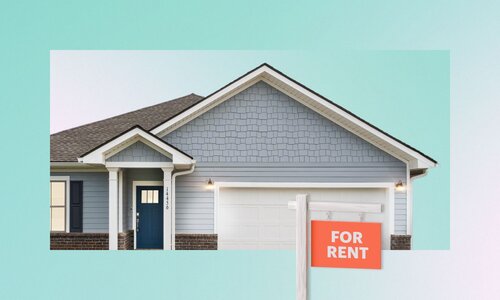Moving to a new place with a homeowners' association? HOAs play an important role in shaping the atmosphere of a community. But living in an HOA also comes with rules. From the exterior appearance of your home to the use of common areas, these rules serve as a roadmap of how residents can coexist and maintain shared spaces. Unintentionally violating those rules can result in fines or other consequences.
Here’s what you need to know.
What Is a Homeowners Association?
A community of homeowners forms a homeowners association (HOA) within a specific residential development or neighborhood. Its primary purpose is to manage and maintain common areas, amenities, and shared facilities within the community, ensuring the neighborhood remains desirable and well-kept. HOA fees are paid to establish and enforce rules and guidelines to maintain the community's overall appearance, property values, and quality of life.
The rules set by an HOA can cover a wide range of aspects, including property maintenance standards, architectural guidelines, landscaping requirements, noise restrictions, pet policies, parking regulations, and more. These rules are typically outlined in the Declaration of Covenants, Conditions, and Restrictions (CC&R), a legally enforceable document that homebuyers agree to follow when they purchase a property within the community. The CC&R applies to various types of properties, including single-family homes.
HOAs are governed by a set of bylaws that outline their internal workings, structure, and governance. The bylaws provide a framework for how the HOA is organized, operates, and makes decisions. They serve as a comprehensive guide for the HOA board of directors, board members, and community members. The HOA may hire a property management company to help with administrative work, executive board meetings, and communication with residents.
Common Homeowners Association rules
If you’re considering purchasing a property, it’s important to review the articles of incorporation to understand the rules and regulations set by the HOA that govern the community. A knowledgeable real estate agent can help guide you through the intricacies. Here are some of the most common HOA rules found in residential communities:
Architectural guidelines
Architectural guidelines are set to maintain a cohesive aesthetic within the community. These community rules dictate the materials, colors, and designs that property owners can use for exterior renovations or modifications. The goal is to ensure that homes complement each other and contribute to the overall visual appeal of the neighborhood. Some HOAs may require that you submit plans and get approval before making any exterior modifications to your home, such as adding a new porch or changing the color of the siding.
Parking restrictions
Parking rules help manage limited parking spaces and prevent congestion. These regulations may dictate where residents can park their vehicles, such as in designated spots or garages. Some HOAs also set guidelines for guest parking and storing recreational vehicles (RVs), boats, or trailers.
Noise restrictions
Noise regulations aim to create a peaceful living environment. Quiet hours may be established during specific times, such as 10 pm to 7 am, to limit disruptive activities.
Pet regulations
Pet rules address pet ownership within the community. They may cover aspects such as the number of pets allowed, breed restrictions, leash requirements, and cleaning up after pets. These guidelines promote responsible pet ownership and maintain cleanliness and safety throughout the neighborhood.
Rental and leasing policies
HOAs may have rules regarding renting out properties within the community. Some HOAs prohibit or restrict rentals, while others may require homeowners to follow specific procedures and provide information about renters to the association.
Landscaping and yard maintenance
Landscaping rules outline expectations for lawn care, landscaping maintenance, and tree upkeep. By enforcing these guidelines, HOAs contribute to the overall curb appeal of the community and prevent properties from becoming eyesores due to neglect.
Trash and recycling guidelines
Waste disposal rules cover the property disposal of trash, recycling, and bulk items. HOAs may specify collection schedules, provide guidelines for using waste bins, and promote eco-friendly practices to keep the community clean and environmentally conscious. Many will require that trash and recycling bins be placed at the curb only on designated collection days and that large items, such as furniture, be disposed of according to the community’s waste management guidelines.
Exterior decorations
Rules for exterior decorations ensure that decorations such as holiday lights, flags, and banners do not detract from the community’s appearance. HOAs may limit the size, type, and duration of decorations. For example, HOAs may mandate that holiday decorations, such as lights and ornaments, can be displayed during the holiday season but must be taken down by January 15.
Home maintenance
These regulations focus on the upkeep of homes to prevent deterioration and maintain home values. HOAs may require regular assessments, inspections, repairs, and maintenance of elements like roofs, siding, and fences to ensure that properties remain in good condition. For example, an HOA may require that roofs be inspected every five years and any necessary repairs or replacements be completed within six months to prevent water damage.
Home business restrictions
Home business rules address the operation of businesses from residential properties. Some HOAs may restrict or regulate home-based businesses to maintain the community's primarily residential nature and prevent commercial activities from disturbing neighbors. Others may allow residents to operate home-based businesses that do not involve customer visits or generate excessive traffic. Signage promoting the business may be prohibited.
Community amenities usage
HOA rules within condominium associations often dictate regulations for shared spaces and amenities. These rules cover aspects such as hours of operation, guest policies, and proper conduct. For example, an HOA may require that residents can only use the community pool and gym during specified hours and that guests be accompanied.
Security measures
Security regulations focus on measures to enhance the safety of residents and their property. These rules may cover the installation of security cameras, alarm systems, and other security features to deter potential criminal activity.
Satellite dishes and antennas
HOAs may require homeowners to adhere to specific guidelines to maintain the community’s visual appeal.
What are Unenforceable HOA Rules?
Unenforceable HOA rules are regulations set by an HOA that, while outlined by their governing body, are not legally enforceable due to various reasons, such as conflicting with state laws or federal laws, such as the Fair Housing Act, or infringing on individual rights, or lacking specificity. These rules may be unenforceable because they are overly vague, ambiguous, discriminatory, or violate public policy. For example:
- Restrictions on religious practices that infringe on an individual’s First Amendment rights.
- Unreasonable pet restrictions, including complete pet bans or discriminatory breed limitations.
- Rules that prohibit residents from displaying political signs on their property infringing on free speech rights.
- Discriminatory rules based on protected characteristics.
- Unclear architectural guidelines lacking specific standards for property modifications.
- Unreasonable fines that are disproportionately high for the violation.
- Rules infringing on property rights by overly restricting property use and enjoyment.
- Rules against solar panels in states with laws protecting residents’ right to install them.
What Happens When You’re in Violation of the HOA’s Rules?
If you violate HOA rules, the HOA will typically follow procedures and enforcement mechanisms to address the violation. The specific steps and consequences can vary depending on the severity of the breach and the HOA’s governing documents, but here’s a general overview of what might happen:
- Notice: The HOA usually starts by sending you a notice informing you of the violation. This notice will detail the specific rule or regulation violated and provide information about the corrective action required.
- Correction period: You’ll be given a specific time to rectify the violation. This could involve addressing the issue, making necessary repairs, or removing the violation.
- Communication: It’s important to communicate with the HOA during this process. If you need more time to correct the violation or if there’s a valid reason for the violation, you can discuss this with the HOA board.
- Fines: The HOA may impose penalties if the violation is not corrected within the specified time frame. These fines can escalate if the violation persists.
- Additional actions: In some cases, the HOA may take further actions to address ongoing violations. This could include legal action, such as placing a lien on your property, seeking a court order, or pursuing other remedies, such as foreclosure, allowed under the HOA’s governing documents.
- Dispute resolution: If you believe the violation was issued in error or disagree with the HOA’s decision, you may have the option to engage in a dispute resolution process outlined in the governing documents.
It’s important to note that the enforcement process can vary widely based on the specific HOA’s rules, governing documents, and local laws. It’s always recommended that you thoroughly review the HOA’s rules and regulations when you move into your home and communicate with the HOA board if you have questions or concerns about a violation. Maintaining an open line of communication and addressing violations promptly can help avoid escalated enforcement actions.
With Arrived, you can invest in a diversified portfolio of residential properties across different markets without the challenges and financial commitment of purchasing and maintaining a single property.







